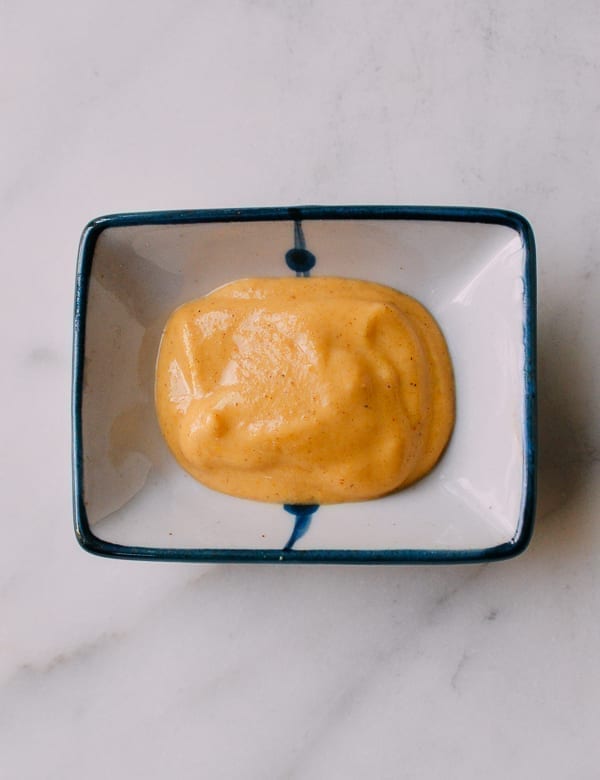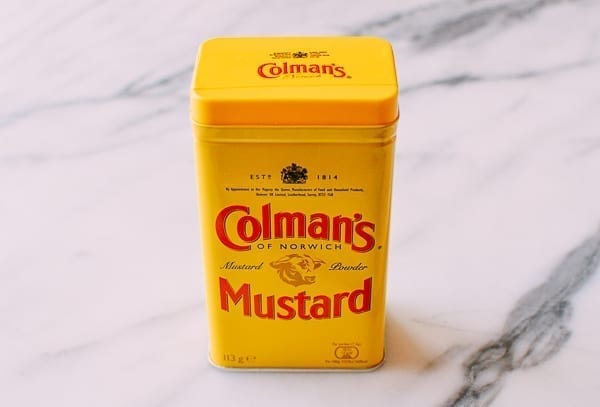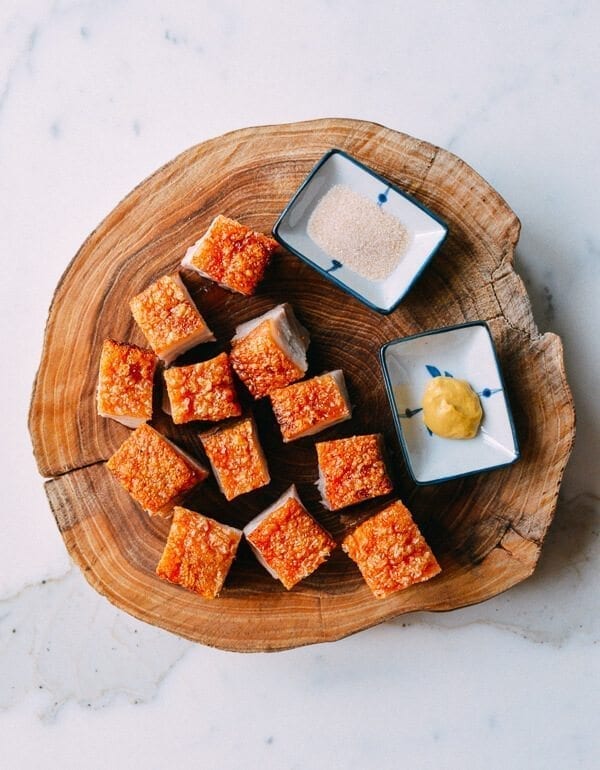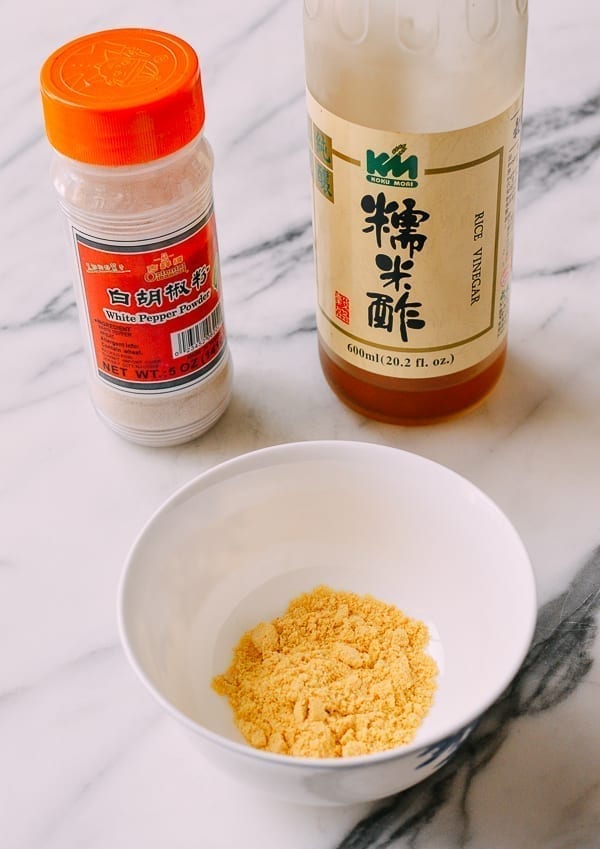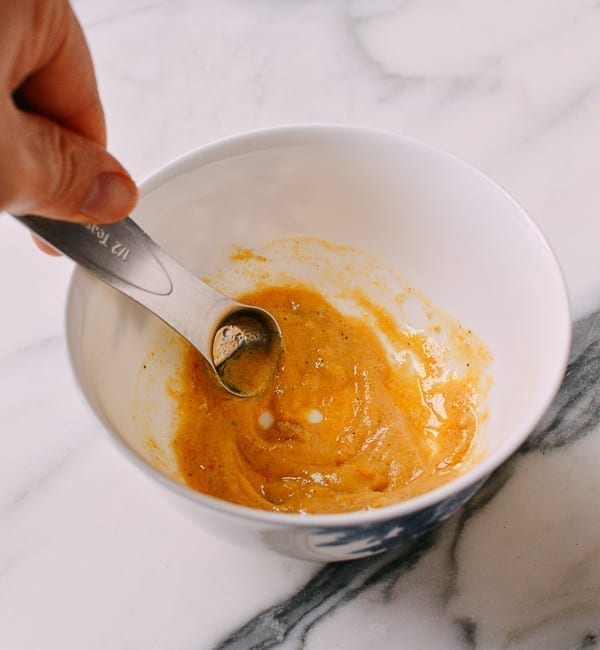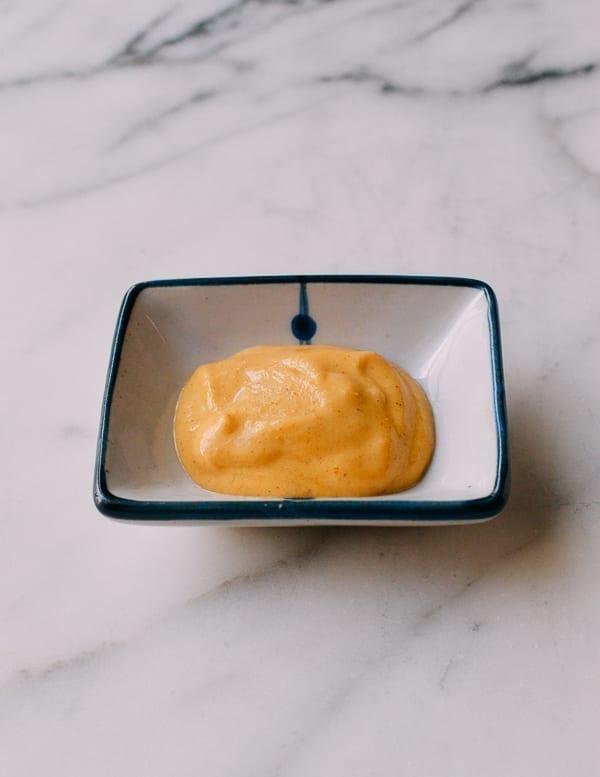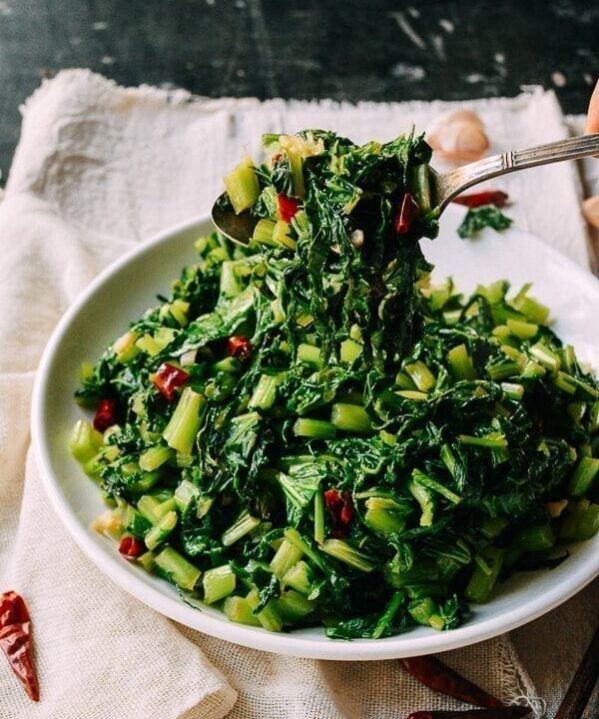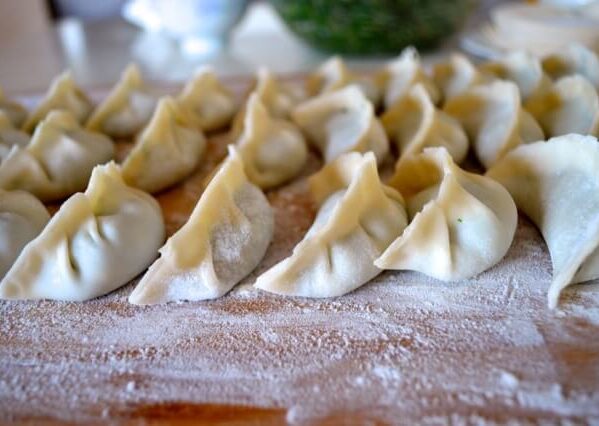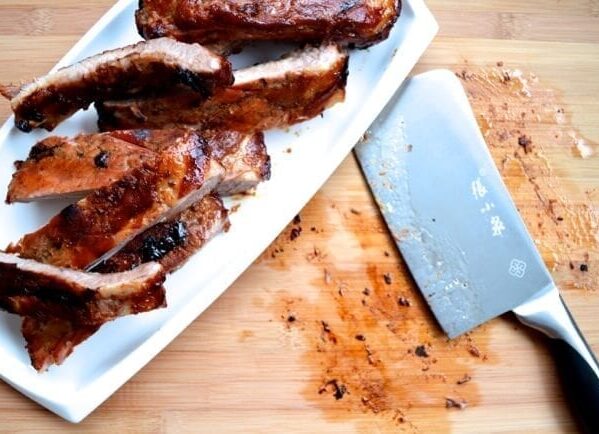Chinese Hot Mustard is one of those condiments you might not think of making yourself, but it’s quick and easy to prepare at home.
Many of you have probably seen Chinese mustard served alongside sweet duck sauce in Chinese restaurants with crunchy fried noodles as an appetizer.
Admittedly, general hot sauce mania means that hot chili oil has taken over as the spicy condiment of choice over Chinese hot mustard. But I think plenty of people will agree that there’s nothing like a mix of Chinese hot mustard with some duck sauce to top off a good egg roll, fried wonton, or piece of roasted pork belly with crunchy skin.
What is Chinese Hot Mustard?
You know those yellow packets you get at the takeout Chinese restaurants along with the orange duck sauce and red hot sauce packets? (When the person behind the counter asks in the most blunt and vague way, “Sauce?!”)
The yellow packets are Chinese hot mustard!
Chinese mustard is pungent, spicy and strong in taste, and it’ll wake your taste buds up immediately with its horseradish-like heat. Like wasabi, it has sinus-clearing properties. Even a whiff will make your nostrils flare!
As you’re making this recipe, keep in mind that it can be adjusted entirely to your taste, and adding some rice vinegar will definitely tone down the spiciness, making your mustard slightly more mellow.
Where to Buy Chinese Mustard?
Chinese dry mustard powder can be found at Asian grocery stores and usually is made of dry mustard with some turmeric.
For this recipe, we used an English dry mustard powder, which is more than fine to make a good Chinese hot mustard.
Chinese mustard packets are convenient for those of you who love a little bit of spice with your Chinese takeout meal, but I can hear Kaitlin’s voice in my head scolding me about single-use plastic and all those little bits of plastic from the packets!
If you don’t already have a junk drawer filled with soy sauce, mustard, and ketchup packets, you can also buy Chinese mustard sold in jars, but it’s not a common item. In a pinch, prepared dijon mustard is a potential substitute, but I can hear one of my old buddies saying, “It just ain’t the same!”
That’s why we’re here to teach you how to make Chinese hot mustard at home.
How to Store It
At our Chinese restaurant, we used to cover the mustard immediately after making it so it wouldn’t dry out. We’d stir it up before serving.
Because it’s so easy to make, I like making smaller batches so it’s always fresh, and I don’t have to deal with storing leftovers.
If making larger batches, always remember to use a clean utensil when stirring and serving your mustard. It’s best to keep it refrigerated for maximum longevity. If maintained this way, it’ll last for weeks or even months in the fridge.
What Recipes Could Use a Little Mustard?
- Cantonese Roast Pork Belly
- Chinese Takeout Egg Rolls
- Fried Wontons
- Fried Cream Cheese Wontons
- Roast Pork Sandwiches on Garlic Bread
Check out our classic Chinese Takeout Collection of recipes for more ideas!
How to Make Chinese Hot Mustard
Mix the dry ingredients together in a small bowl until evenly combined. Add water and stir well until a liquid paste forms and all dry ingredients are absorbed. If you like a thicker mustard, you can reduce the amount of water by half.
Next, add oil and vinegar and stir well until evenly combined.
Let your Chinese hot mustard rest for 10 minutes covered, and re-stir to ensure the dry ingredients have fully absorbed.
At this point, taste your Chinese Hot Mustard and adjust it to your own preferences:
- Add a little more water or oil if you like a thinner in consistency or a bit more dry mustard if you like it thicker.
- Add more rice vinegar if you like it a tad tart. Omit the vinegar altogether if you like it spicier, since vinegar makes your mustard a bit mellower in flavor––sounds counterintuitive, I know!
- Add more white pepper and/or mustard powder if you like it spicier.
- Add sugar (optional) if you want to balance the bitterness of the mustard
Any changes beyond that, and it’s your own sauce folks! But that’s the beauty of home cooking.
You now have authentic Chinese hot mustard that is much better than the packets you get at Chinese take-out restaurants.
No preservatives. No unknowns. Enjoy this authentic Chinese hot mustard recipe!
Looking for other condiment recipes? Check these out:
- How to Make Duck Sauce
- Homemade Chili Oil
- Chiu Chow Chili Sauce (Chili Oil with Garlic!)
- Homemade XO Sauce
- Ginger Scallion Oil with Chilies
Chinese Hot Mustard
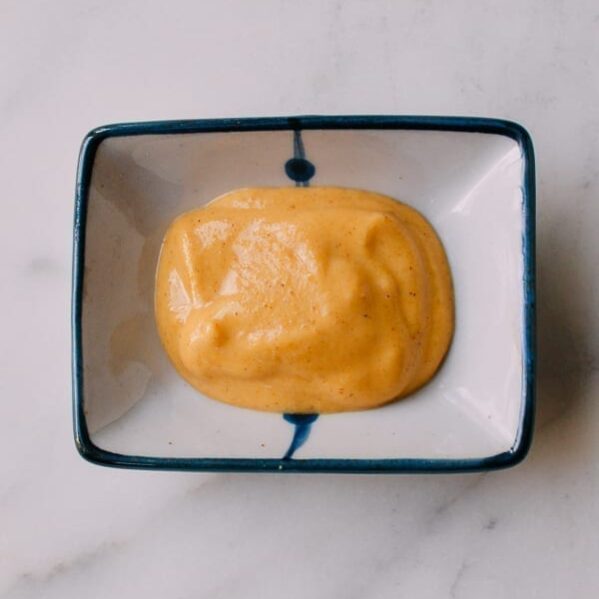
Ingredients
- 1 tablespoon mustard powder
- ⅛ teaspoon salt
- ⅛ teaspoon white pepper
- 1½ teaspoon hot water
- ½ teaspoon vegetable oil
- ½ teaspoon rice vinegar
- 1/4 teaspoon granulated sugar optional
Instructions
- Mix the dry ingredients together in a small bowl until evenly combined. Add water and stir well until a liquid paste forms and all dry ingredients are absorbed. Next, add oil and vinegar and stir well until evenly combined.
- Let your Chinese hot mustard rest for 10 minutes covered, and re-stir to ensure the dry ingredients have fully absorbed. At this point, taste your Chinese Hot Mustard and adjust it to your own preferences.
- Add a little more water or oil if you like a thinner in consistency. Add more vinegar if you like it a tad tart. Omit the vinegar altogether if you like it spicier, since vinegar makes your mustard a bit mellower in flavor. Add more white pepper and/or mustard powder if you like it spicier. Add sugar if you want to tone down the bitterness of the dry mustard.
